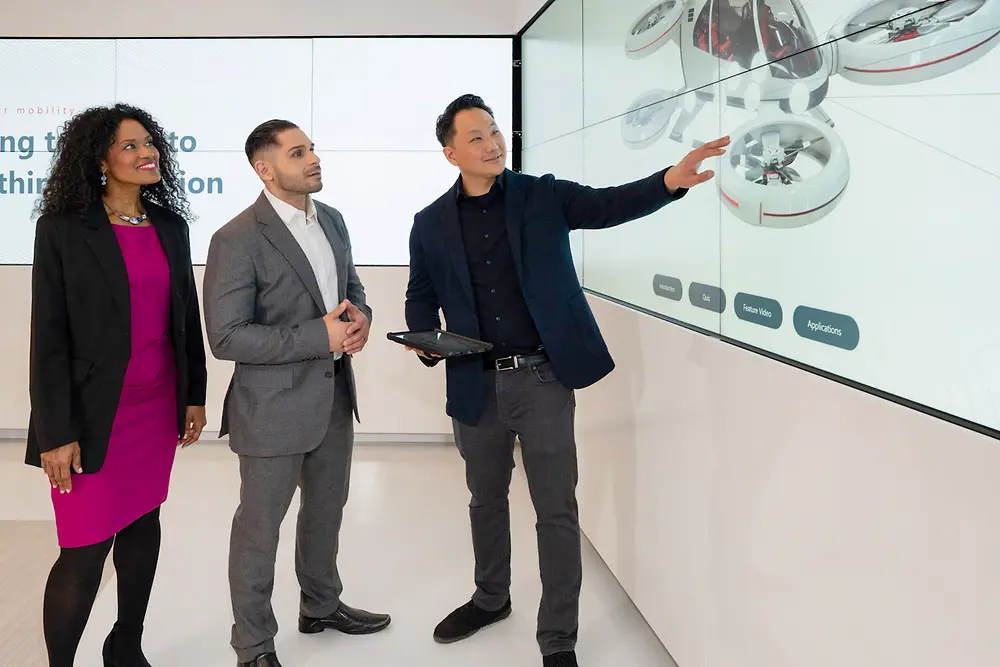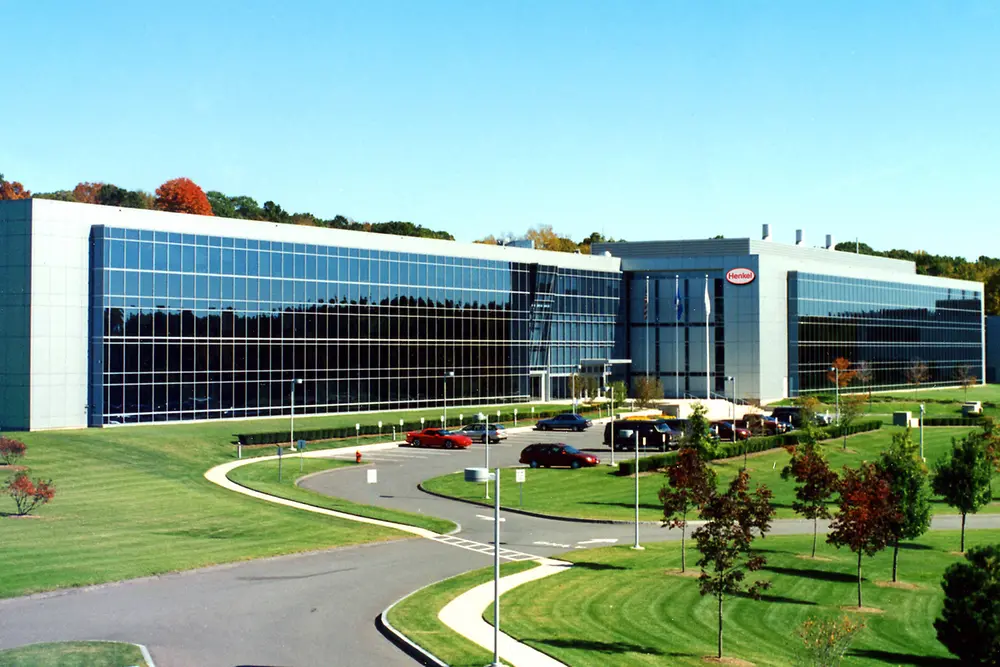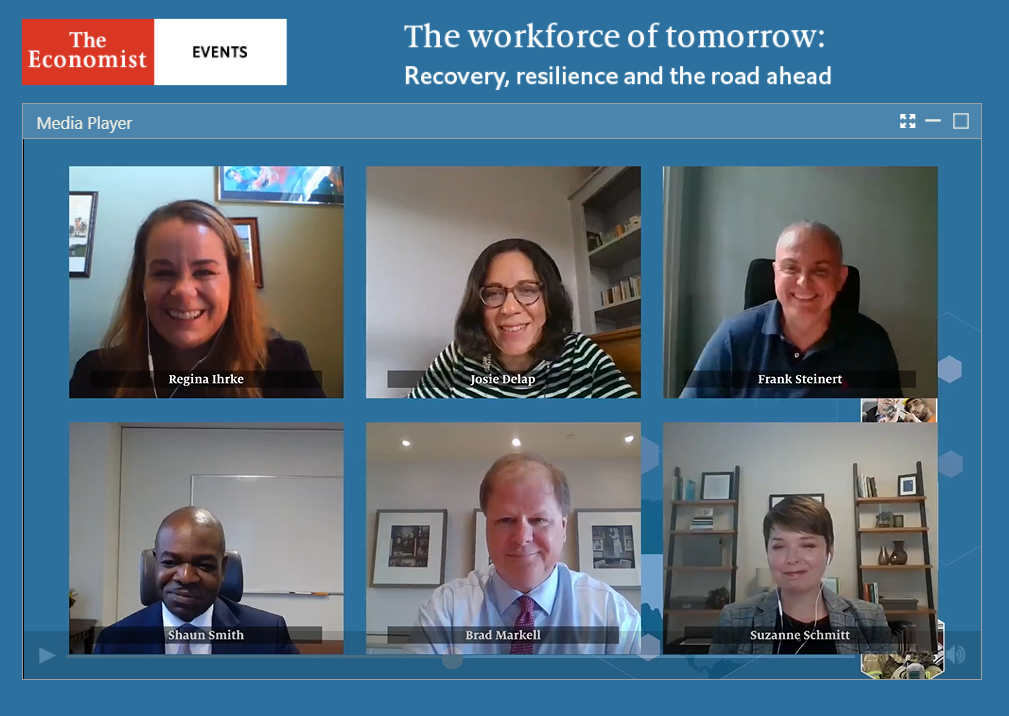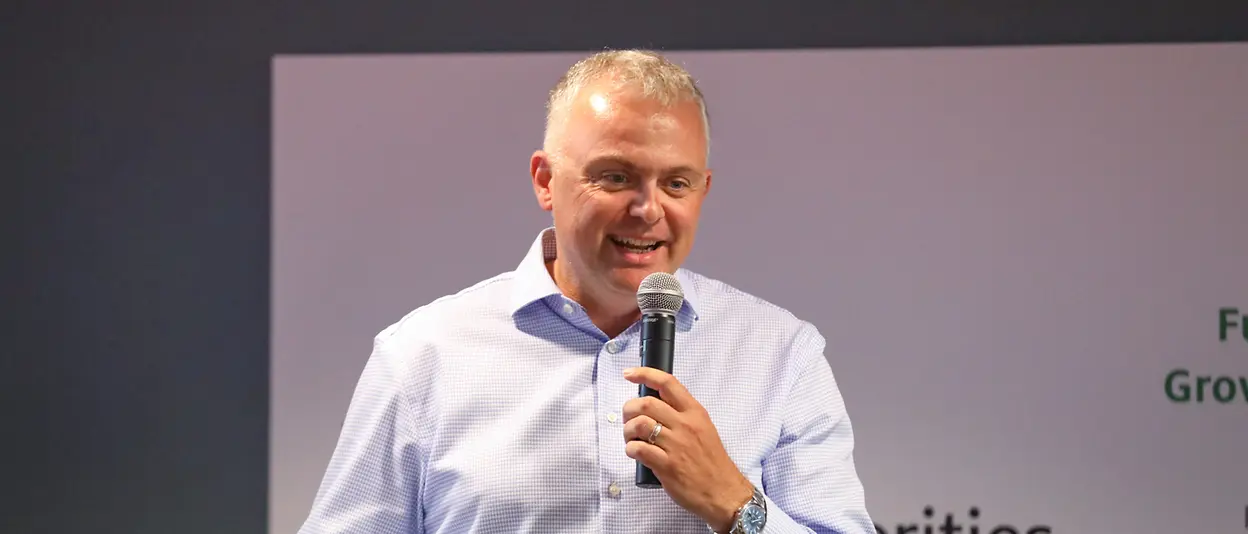Ultimately, the pandemic proved that we can, and need to, trust our employees — and technology. In my view, the trend toward flexible work arrangements is irreversible, and I consider that to be one silver lining of the pandemic. Yet, I think we can all agree that in-person interactions hold a certain magic in terms of collaboration, innovation, team spirit and camaraderie. I believe our offices are not just homes to our desks, but places where employees can feel a sense of community and belonging, and foster creativity, mentorship, and knowledge-sharing.
The challenge then becomes finding the sweet spot between remote work and in-person interaction. At Henkel, we’re calling our approach to doing so “Smart Work“.
Smart Work is our new framework covering the role of office and mobile work, as well as important topics such as employee health, sustainability, travel, and workforce digitalization. Taking a holistic approach, Smart Work aims to shape the way we want to work in the future. Smart Work promotes a culture of trust and flexibility where results matter more than office hours. Because it offers high flexibility to meet the diverse needs and lifestyles of our workforce, Smart Work reflects and strengthens Henkel’s commitment to diversity.
Still, the path forward will not be smooth or direct. No one program or tool will solve things at once. Ongoing and conscious investments into people — be it their work environment, compensation, or learning needs — remain paramount if we are to succeed in the future. As more companies embrace remote work, we must navigate key questions: How do we best apply organizational principles consistently in a more flexible workplace? Does flexibility mean prioritizing personal preferences over professional requirements and needs? It is also imperative that we stay tuned in to the needs of employees at our production sites and labs, who continue to face their own unique pressures as essential workers.
In addition, as most of us have experienced firsthand during the pandemic, working from home has a way of blurring the lines, and sometimes hours, between our professional and personal lives. It can be difficult to disconnect at the end of the workday. As leaders, we need to be more mindful of the unique stresses and watch-outs of remote work.
In my view, organizations can only thrive if employees feel respected and heard. More than ever, continuous and candid conversations are needed between employers and their employees. An annual survey won’t do the trick. We must engage in a never-ending dialogue around key questions: What works? Where are we stuck? How are employees struggling, and what do they need from their leaders? We also need to realize that there is no “one size fits all” solution.
Leaders must be willing to listen to feedback openly and constructively. Henkel’s Employee Resource Groups and Diversity Equity & Inclusion (DEI) ambassadors will also play a key role in these conversations and help us keep a finger on the pulse of employee well-being across our organization. And employees will need to keep in mind that much of what we are going through is also a first for the organization and its leadership. There will be growing pains and a learning curve.
While the pandemic has forced change upon us — as individuals and organizations — we have witnessed our own willingness to adapt, learn and grow. I am confident that through asking the right questions, staying flexible, and listening to our employees, we can be ready for whatever the future may bring.







